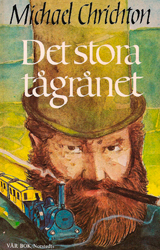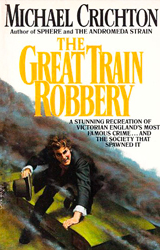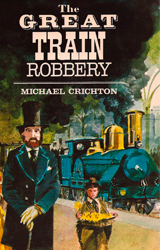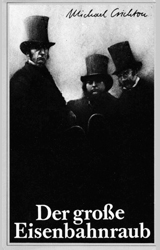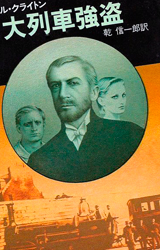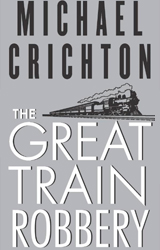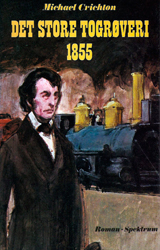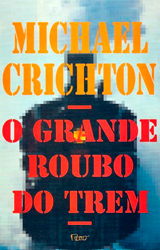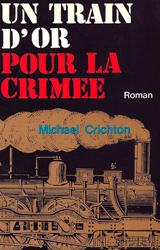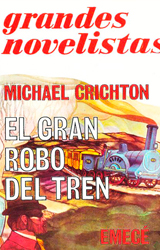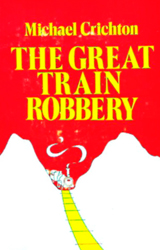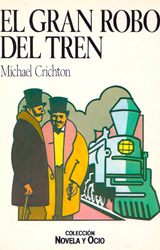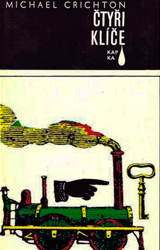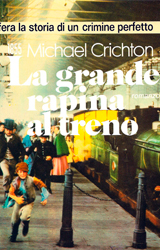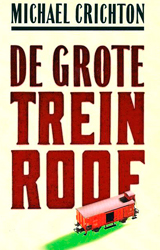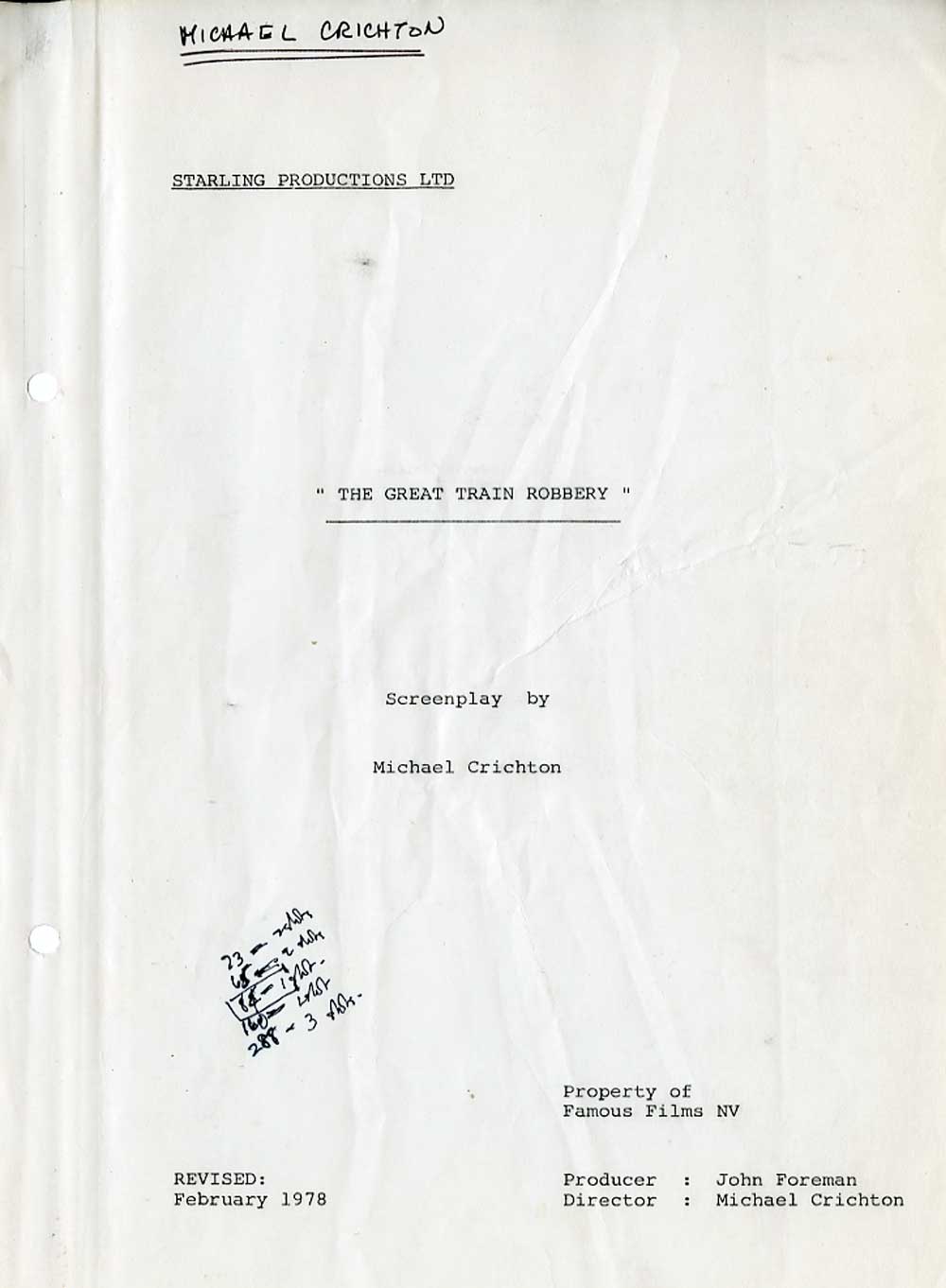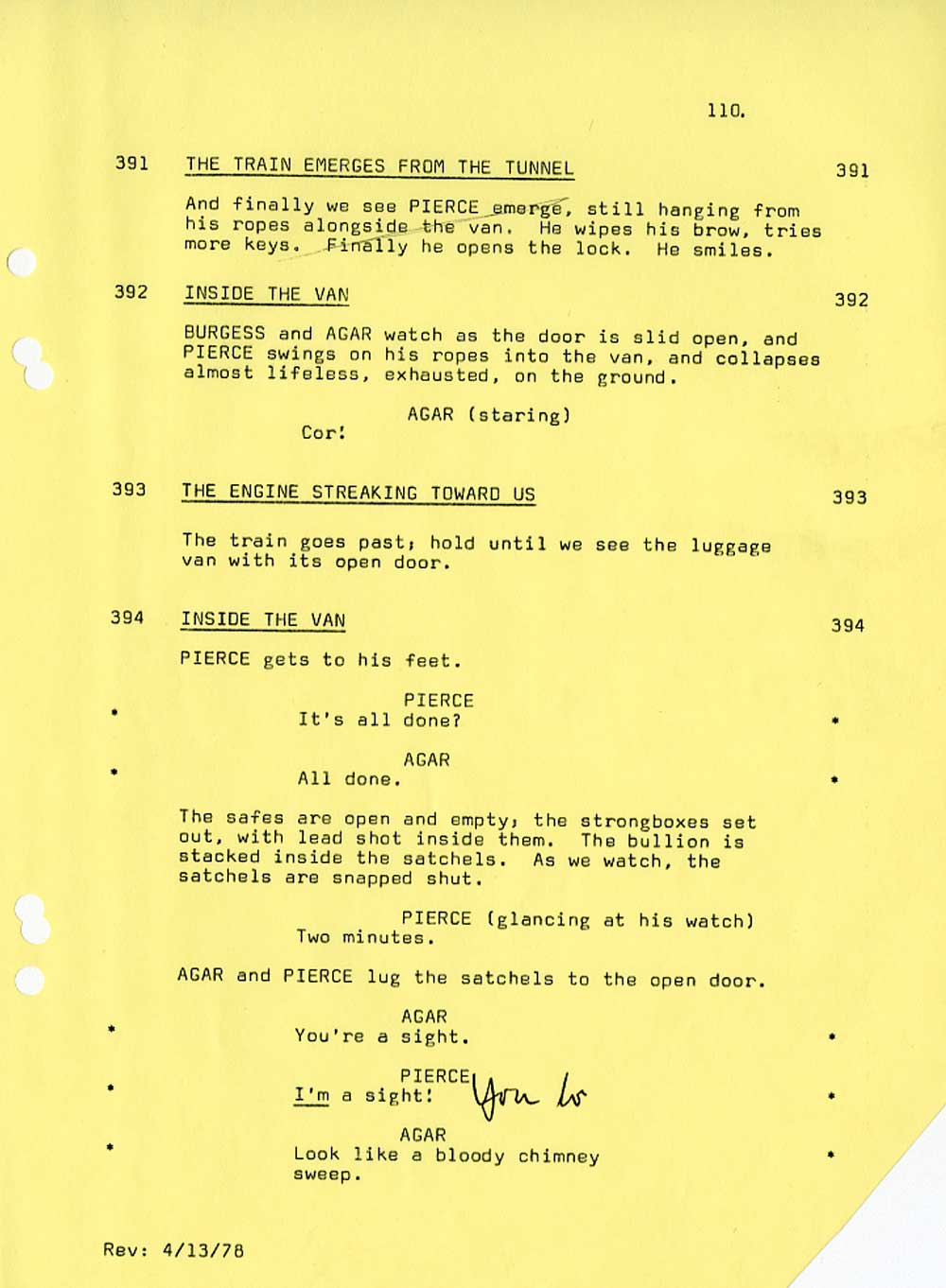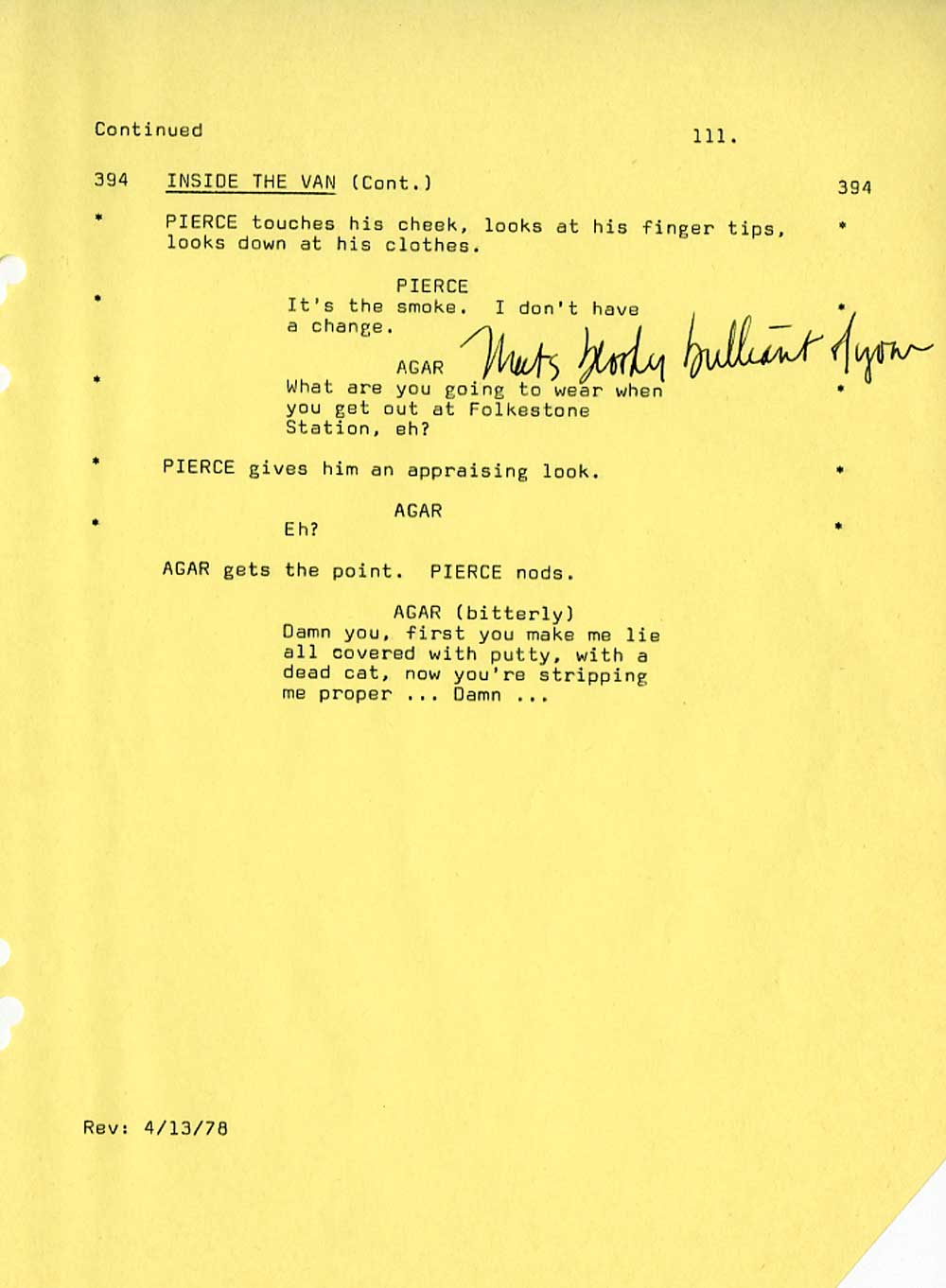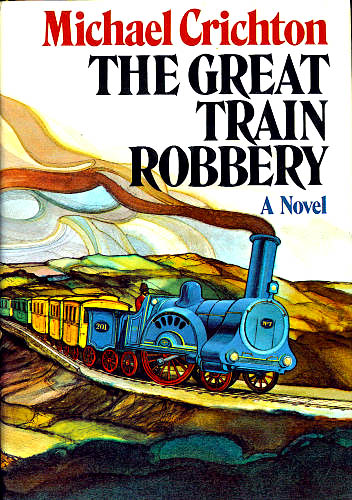
The Great Train Robbery
In His Own Words
Things develop in the course of work. I woke up one night when The Great Train Robbery was almost completed, and thought that what the book’s really about is repression, and that’s what the whole Victorian period means. And the idea of criminals going against society made them the least repressed. That’s what the book is about, and this came totally after the fact. At the time, I was just writing a story.

Synopsis
Lavish wealth and appalling poverty live side by side in Victorian London — and Edward Pierce easily navigates both worlds. Rich, handsome, and ingenious, he charms the city’s most prominent citizens even as he plots the crime of his century — the daring theft of a fortune in gold.
But even Pierce could not predict the consequences of an extraordinary robbery that targets the pride of England’s industrial era: the mighty steam locomotive. Based on remarkable fact, and alive with the gripping suspense, surprise, and authenticity that are his trademark, Michael Crichton’s classic adventure is a breathtaking thrill-ride that races along tracks of steel at breakneck speed.
Passage 1
This singular gentleman was Edward Pierce, and for a man destined to become so notorious that Queen Victoria herself expressed a desire to meet him — or, barring that, to attend his hanging — he remains an oddly mysterious figure. In appearance, Pierce was a tall, handsome man in his early thirties who wore a full red beard in the fashion that had recently become popular, particularly among government employees. In his speech, manner, and dress he seemed to be a gentleman, and well-to-do; he was apparently very charming, and possessed of a “captivating address”. He himself claimed to be an orphan of Midlands gentry, to have attended Winchester and then Cambridge. He was a familiar figure in many London social circles and counted among his acquaintances Ministers, Members of Parliament, foreign ambassadors, bankers and others of substantial standing. Although a bachelor, he maintained a house at No. 19 Curzon Street, in a fashionable part of London. But he spent much of the year traveling, and was said to have visited not only the Continent but New York as well.
Passage 2
Pierce and Agar had been on the rooftop since dawn. They had watched the early arrival of the tellers and clerks; they had seen the traffic in the street and on the pavements grow more brisk and hurried with each passing minute.
Now the brougham pulled up to the door of the bank, and the driver jumped down to open the door. The senior partner of Huddleston & Bradford stepped down to the pavement. He was near sixty, his beard was gray, and he had a considerable paunch; whether he was balding or not, Pierce could not discern, for a high top hat covered his head.
“He’s a fat one, isn’t he,” Agar said.
“Watch, now,” Pierce said.
At the very moment Mr. Trent stepped to the ground, a well-dressed young man jostled him roughly, muttered a brief apology over his shoulder, and moved on in the rush-hour crowd. Mr. Trent ignored the incident. He walked the few steps forward to the impressive oak doors of the bank.
Then he stopped, halting in mid-stride.
“He’s realized,” Pierce said.
Passage 3
For the next hour, while the morning passenger train chugged from London to Folkestone, Agar worked on his keys. Ultimately, he had opened and closed both safes. When he was finished, he wiped the grease from the locks. Then he cleaned the locks with alcohol and dried them with a cloth. Finally he took his four keys, placed them carefully in his pocket, and sat down to await the arrival of the train at the Folkestone station.
Pierce met him at the station and helped to unload the leopard.
“How was it?” he asked.
“The finishing touches are done,” Agar said, and then he grinned. “It’s the gold, isn’t it? The Crimean gold – that’s the flash pull.”
“Yes,” Pierce said.
“When?”
“Next month,” Pierce said.
The leopard snarled.
From the Archives
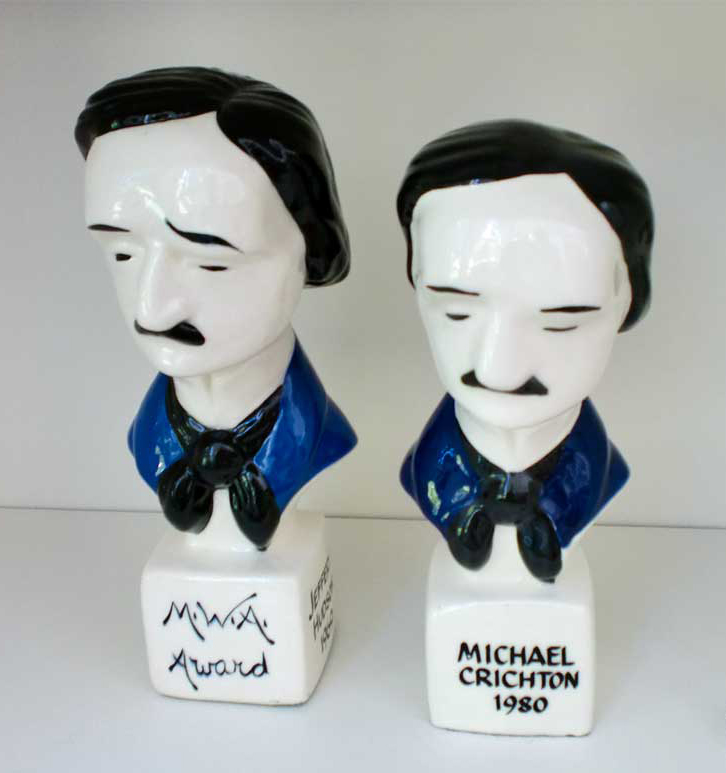
Michael Crichton’s Edgar Award
for The Great Train Robbery
In His Own Words
Finally we are shooting a long take where Sean comes running up the length of the train, jumping from car to car. Because we are shooting in all directions, the camera operator and I are hanging out on a side platform, and everyone else is inside the train. I am trying to watch the scene and also to remember to duck down at the right time so the camera lens can swing over my head.
Filming begins. Sean runs up the length of the train. I smell a harsh acrid odor. I feel a sharp pain on top of my scalp. I realize that my hair has been set on fire by the cinders from the locomotive. I am frantically brushing at my hair, trying to put the fire out, because I don’t want smoke coming from my head when the camera swings over me.
While I am doing that, Sean jumps to the nearest car, stumbles and falls. I think, Jeez, Sean, don’t overdo making it look dangerous. He is carrying a bundle of clothes, a story point. He drops the clothes as he falls and I realize Sean would never do that, that he must have really fallen. Meanwhile, I am still trying to put the fire out on my head. Sean scrambles to his feet, retrieves the clothes, and moves on, wincing in genuine pain. I get the cinders out of my head as the camera swings over. We make the shot.
Afterward we stop the train; everybody gets off. He has a bad cut on his shin that is being attended to.
“Are you all right, Sean?”
He looks at me. “Did you know,” he says, “that your hair was on fire? You ought to be more careful up there.”
And he laughs.
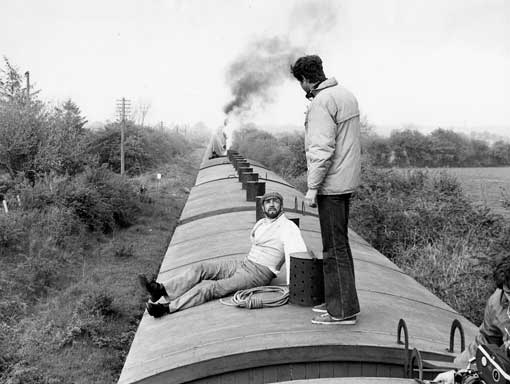
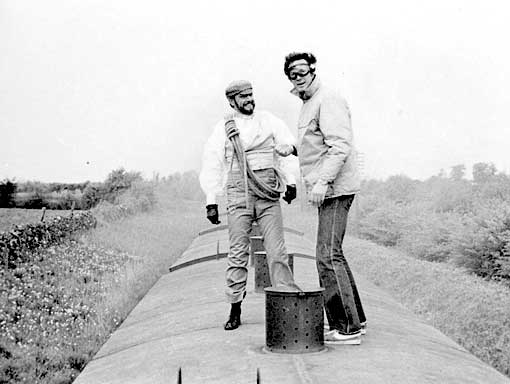
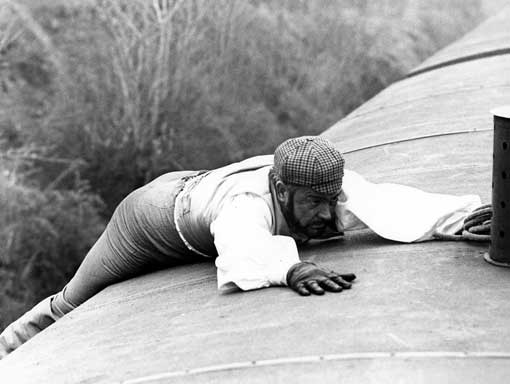
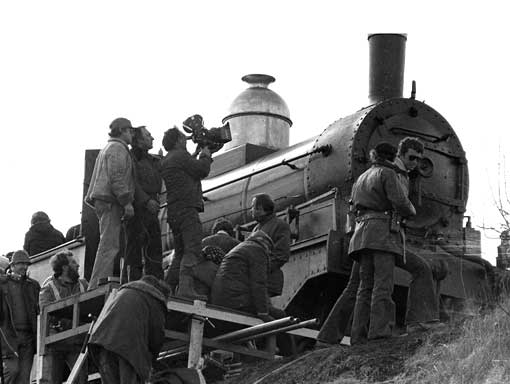
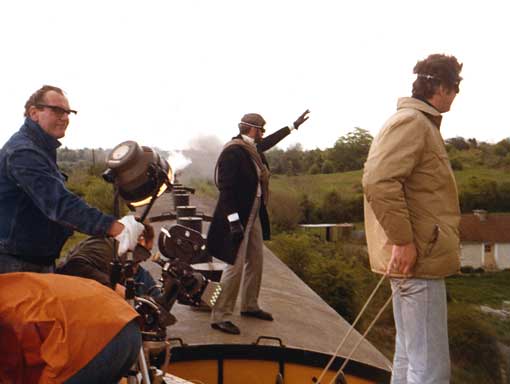
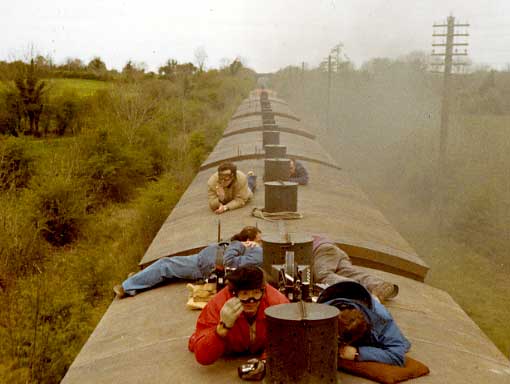
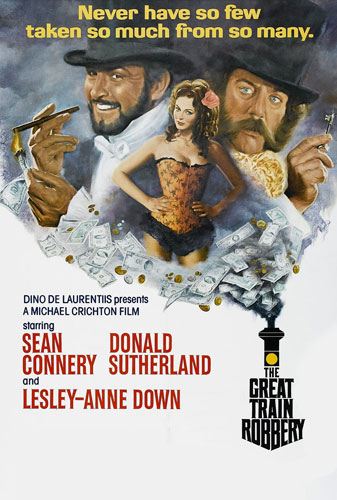
The Great Train Robbery (Movie)
| Release Date: | February 2, 1979 |
| Running Time: | 1 hr. 50 min. |
| MPAA: | PG |
| Director: | Michael Crichton |
| Screenwriter: | Michael Crichton |
| Based on the Novel By: | Michael Crichton |
| Studio: | United Artists |
| Starring: | Sean Connery, Donald Sutherland, Lesley-Anne Down, Alan Webb |
This was a fast book for me, but even so, a book takes a long time, and the information on the period was so interesting to me that I thought, “Well, I’m having a good time and can afford the luxury of indulging this interest, where or not anyone in the United States in the nineteen seventies cares about England in the eighteen fifties. And now there’s a Victorian revival, everybody is writing about the Victorian period. I started out esoteric, and ended up fashionable.
Book Covers
